Douglas S Shares His Experience
Learn What Sharon Experienced
Dr. Hanson’s healing pyramid and healing circle are two new tools that he has developed over the past five years. These tools incorporate timing, emotion, energy, physiology, neurology, and structure into a comprehensive approach to care.
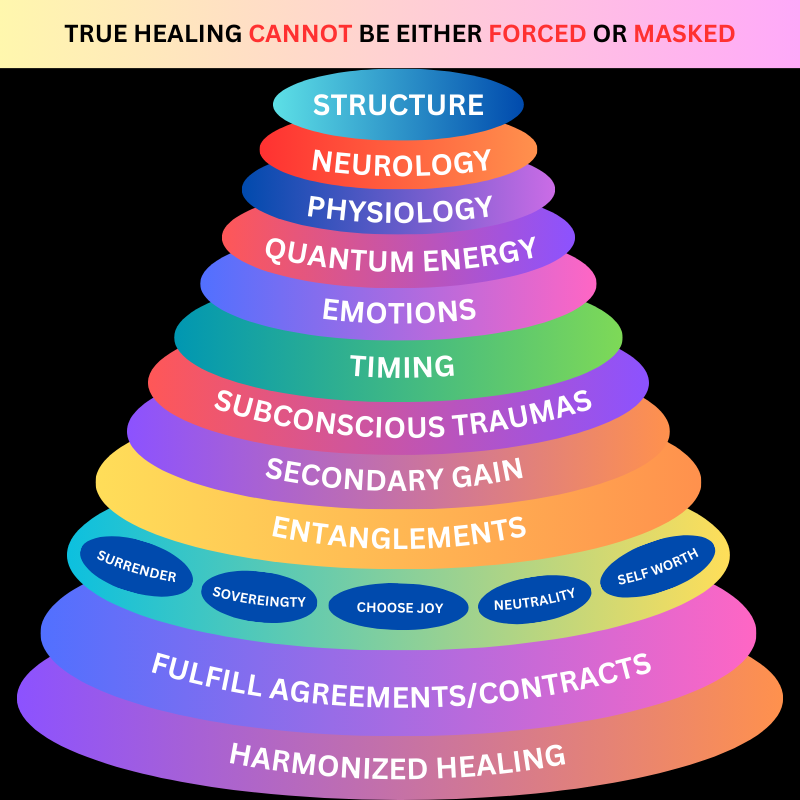
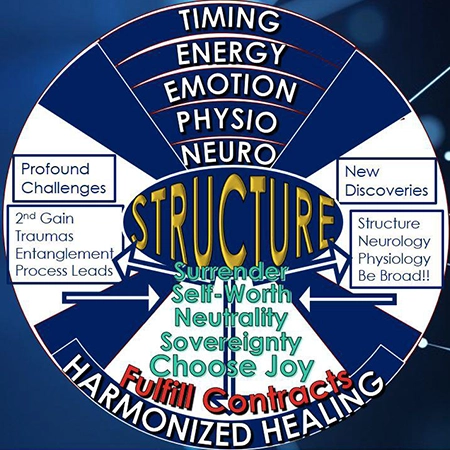
Process-oriented care is a holistic approach to care that focuses on the healing process as a whole. At Regenerative Masters, we consider the underlying causes of fluoroquinolone toxicity and our patients’ physical, spiritual, emotional, and social needs.
On the other hand, symptom-oriented care focuses on managing the symptoms of fluoroquinolone toxicity, involving prescribing medications or other treatments to relieve the symptoms. However, symptom-oriented care does not address the underlying causes of fluoroquinolone toxicity, so the symptoms may return once the treatments are discontinued.
Collagen is a protein found in all connective tissues, including tendons, ligaments, and fascia. This protein provides connective tissues with their strength and elasticity. When collagen is injured, it can lead to pain, weakness, and instability.
Several factors can contribute to collagen injuries, including:
Fascia, a delicate layer of connective tissue, envelops all the body’s muscles, tendons, ligaments, nerves, and blood vessels. Its primary functions are to secure these structures in their respective positions and facilitate the transmission of forces across the entire body.
On the other hand, Tensegrity is a fundamental structural principle observed in various biological systems, including the human body. It revolves around a network of interconnected elements held together by tension. This tension endows these structures with the dual qualities of strength and lightweightness while retaining flexibility.
In conjunction with the tendons and ligaments, the fascia collectively forms a tense structure within the body. This unique architecture is responsible for the body’s remarkable capacity to move and absorb external forces.
Unfortunately, the detrimental effects of Fluoroquinolone toxicity can inflict damage upon the fascia and tendons/ligaments, leading to significant alterations in their structural integrity and function. These alterations can manifest as symptoms such as pain, weakness, instability, and other associated problems.
Fluoroquinolone toxicity can also damage the blood vessels, leading to many problems that can dangerously alter your blood supply, including:
Vascular injuries can lead to several problems, including:
Floxie neck is a term used to describe upper cervical instability often seen in people with fluoroquinolone toxicity. Barre-Lieou syndrome is a rare but serious condition that can occur in people with upper cervical instability. Sudden and severe headaches, neck pain, and neurological symptoms characterize it.
Fluoroquinolone toxicity can damage the ligaments and other soft tissues supporting the upper cervical spine, leading to upper cervical instability and increasing the risk of Barre-Lieou syndrome.
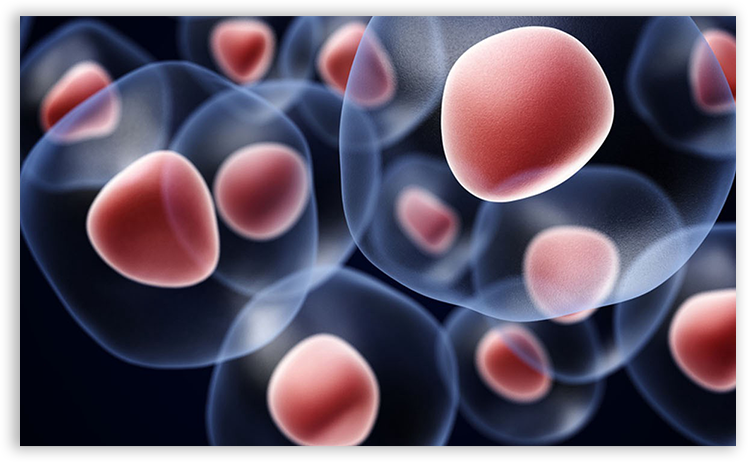

In upper cervical instability (UCI), the joints in the upper neck, between the skull and the first two vertebrae, become loose or unstable. This could lead to a variety of symptoms that could include headaches, neck pain, dizziness, and nausea.
It is thought that fluoroquinolones can damage the collagen in the connective tissues of the neck, leading to UCI. This damage can occur even after a single dose of fluoroquinolone.
Floxie neck is a serious condition that can be difficult to diagnose and treat. However, there are a number of things that you can do to manage the symptoms and improve the quality of life.
Peripheral neuropathy is a condition that damages the nerves outside the brain and spinal cord. The resulting symptoms include numbness, tingling, burning pain, and muscle weakness.
Fluoroquinolones can damage peripheral nerves by blocking myelin production, the protective sheath surrounding nerves. This damage can be permanent, even after the fluoroquinolone is discontinued.
Peripheral neuropathy is a common side effect of fluoroquinolones and can be very difficult to treat. Many medications can manage the symptoms, but there is no cure.
GABA (gamma-aminobutyric acid) is a neurotransmitter that has a calming effect on the brain. Fluoroquinolones can downregulate GABA receptors, meaning fewer GABA receptors are available to bind GABA. The deterioration of GABA receptors can increase anxiety and other mental health problems.
There are many ways to encourage GABA production and function, including:
Our sympathetic nervous system is responsible for the fight-or-flight response. It is activated when the body perceives a threat. Fluoroquinolones can damage the sympathetic nervous system, leading to a variety of symptoms, including:
Sympathetic dysfunction is a complex condition that can be difficult to treat. However, there are a number of things that can be done to manage the symptoms, such as:
Your gut is home to trillions of bacteria essential in digestion, immunity, and detoxification. Fluoroquinolones can kill these good bacteria, leading to gut dysbiosis and causing various problems, including digestive issues, malabsorption of nutrients, and impaired detoxification.
Mitochondria are the powerhouses of your cells. They produce the energy that your cells need to function properly. Fluoroquinolones can damage mitochondria, leading to fatigue, muscle weakness, and cognitive impairment.
The endocrine system produces and regulates hormones. Hormones play a role in a variety of bodily functions, including metabolism, growth, and reproduction. Fluoroquinolones can disrupt the endocrine system, leading to various problems, including thyroid dysfunction, sex hormone imbalance, and adrenal insufficiency.
DNA refers to the genetic material that contains the instructions for building and maintaining your body. Fluoroquinolones can damage your DNA, leading to cancer and autoimmune diseases.
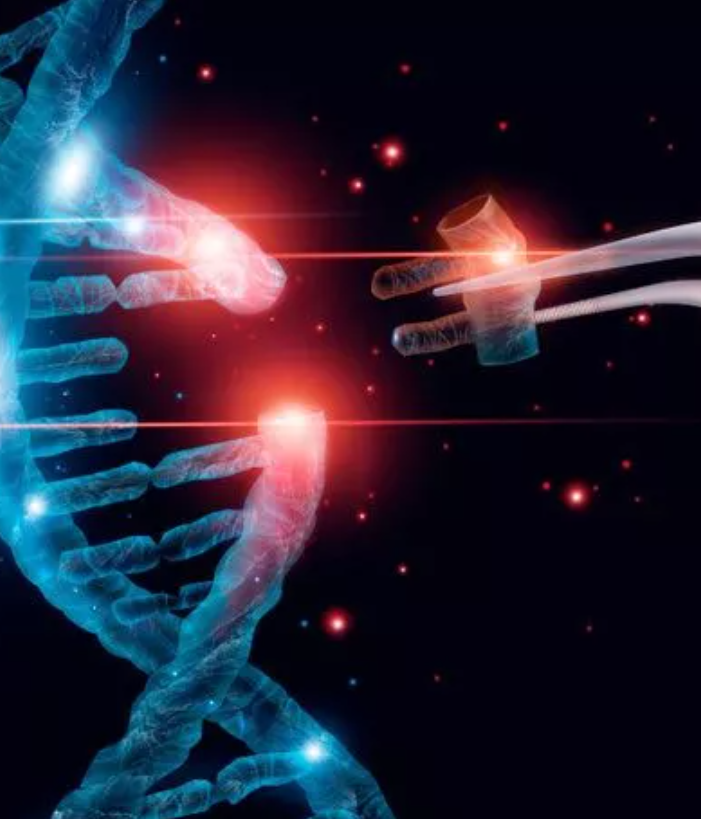

Anxiety is a common side effect of fluoroquinolone toxicity (fluoroquinolone toxicity). It can be caused by the damage that fluoroquinolone toxicity does to the nervous system and by the gut microbiome disruption. Fluoroquinolone toxicity can also cause inflammation throughout the body, contributing to anxiety.
Suicidality is another serious side effect of fluoroquinolone toxicity. It is thought to be caused by the combination of anxiety, depression, and cognitive dysfunction that can be caused by fluoroquinolone toxicity. This toxicity can also lead to changes in brain chemistry, making people more vulnerable to suicidal thoughts and behaviors.
Fluoroquinolone toxicity can damage the sympathetic nervous system, which can lead to a variety of problems, including anxiety, depression, and fatigue. Fluoroquinolone toxicity can also cause the sympathetic nervous system to be overactive, leading to high blood pressure, heart palpitations, and difficulty sleeping.
The gut microbiome is a collection of trillions of bacteria that live in the digestive tract. It is vital in bodily functions, including digestion, immunity, and mood. Fluoroquinolone toxicity can damage the gut microbiome, which can lead to a variety of problems, including anxiety, depression, and cognitive dysfunction.
These are forms of structure, function, and capacity that can be measured by laboratory analysis, imaging, history, and physical examination. We monitor these factors individually and collectively as a group at Regenerative Masters.
For instance, inflammatory states monitored by our physiologic evaluations will decrease the ability of mitochondria to effectively create energy, which decreases cellular health and alters cognitive, physiological, and physical activities. Our providers have a 50-point system of monitoring transformations and the interrelated connections of five segments of care.
The inflammatory response is a complex process that involves the interaction of many different cell types and signaling molecules. When cells are damaged, they release a variety of inflammatory mediators, including cytokines, chemokines, and eicosanoids. These mediators act on other cells to attract immune cells to the site of injury and to promote the production of additional inflammatory mediators. The inflammatory response is essential for healing, but it can also be harmful if it is not properly controlled.
The immune system is a complex network of cells, tissues, and organs that work together to protect the body from infection and disease. The immune system is constantly on alert, scanning the body for foreign invaders. When a foreign invader is detected, the immune system launches a coordinated attack to destroy it. The immune system is very effective at protecting the body from infection, but it can also be harmful if it is not properly regulated.
The endocrine system is a network of glands that produce and release hormones. Hormones are chemical messengers that travel through the bloodstream to target tissues and organs. Hormones regulate a wide variety of bodily functions, including growth, development, metabolism, and reproduction. The endocrine system is essential for maintaining a healthy body, but it can also be harmful if it is not properly regulated.
These are just a few examples of the many ways in which these pathways interact. The interactions between these pathways are complex and not fully understood. However, it is clear that these interactions are essential for maintaining a healthy body.
Healing at the quantum and energetic level is a profound and nuanced process that transcends the limitations of conventional assessment methods. While we may not be able to fully measure or quantify its effects, the impact of quantum and energetic healing is evident in the realm of emotions, energy, enthusiasm, hope, and vibrancy. These aspects of our being are deeply intertwined with our quantum or spiritual foundation, forming the core of our well-being.
At Regenerative Masters, we recognize the profound significance of quantum and energetic healing, with half of our providers intimately connected to this dimension of care. This perspective approaches healing not merely as a physical restoration but as a journey of self-discovery, purpose, and meaning. We believe that this holistic understanding is fundamental to achieving true and lasting well-being.
The journey of healing from fluoroquinolone toxicity is a deeply personal and transformative one. It is a path marked by challenges, setbacks, and moments of profound insight and growth. As you navigate this terrain, it is essential to recognize the inherent meaning and purpose embedded within your experiences.
The varied nature and intensity of the symptoms and injuries associated with fluoroquinolone toxicity touch upon the very essence of your being, affecting your physical, emotional, cognitive, and spiritual well-being. These experiences, when viewed through the lens of perspective, contrast, context, and meaning, can serve as invaluable teachers, guiding you toward a deeper understanding of yourself and your place in the world.
Embracing the transformative potential of fluoroquinolone toxicity requires a shift in perception, moving away from the notion of victimhood and embracing a mindset of growth and resilience. By recognizing the challenges and symptoms you face as integral parts of your learning and evolution, you open yourself to a profound healing process.
The challenges you encounter in your journey of healing from fluoroquinolone toxicity are not merely obstacles to overcome; they are opportunities for growth, transformation, and self-discovery. These experiences, when approached with a willingness to learn and adapt, can unveil hidden gifts and strengths within you.
As you navigate the complexities of fluoroquinolone toxicity, you cultivate resilience, adaptability, and a deeper understanding of your own inner strength. You discover the power of the mind-body connection and the profound capacity for healing that lies within you.
The path to healing from fluoroquinolone toxicity is not a linear one. It is marked by ups and downs, plateaus, and breakthroughs. Embracing the journey, with all its twists and turns, is essential for achieving lasting transformation.
By focusing on the present moment, on the small steps of progress, and on the lessons you learn along the way, you create a foundation for enduring healing. You discover that the journey itself is a source of growth and transformation, not merely a means to an end.
Healing from fluoroquinolone toxicity is not merely about alleviating physical symptoms; it is about restoring balance and wholeness on all levels of your being. It is about reclaiming your physical, emotional, cognitive, and spiritual well-being.
A holistic approach to healing encompasses addressing the root causes of your symptoms, nurturing your body with nourishing foods and supportive therapies, and cultivating emotional resilience and spiritual growth. It is about honoring the interconnectedness of all aspects of your being and creating a foundation for lasting well-being.
As you navigate the transformative journey of healing from fluoroquinolone toxicity, you emerge stronger, wiser, and more empowered. You gain a deeper understanding of yourself, your strengths, and your capacity for resilience. You discover the profound healing power of the mind-body connection and the transformative potential of adversity.
This journey is not just about recovering from an injury; it is about uncovering your true potential and embracing a life of purpose, meaning, and fulfillment. It is about reclaiming your health, your vitality, and your zest for life.
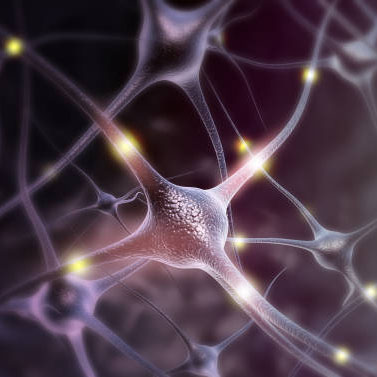
Treating fluoroquinolone toxicity as a singular event in your life relegates it to a nuisance. Fluoroquinolone toxicity touches and affects many, if not all, parts of your life.
The good news is that our team at Regenerative Masters can engage fluoroquinolone toxicity as a catalyst for healing and realigning the many parts of your life that have been painful, allowing you to undergo a deeply positive transformation and enabling you to move forward in new directions.
Contact Regenerative Masters today for a consultation and witness the change today.